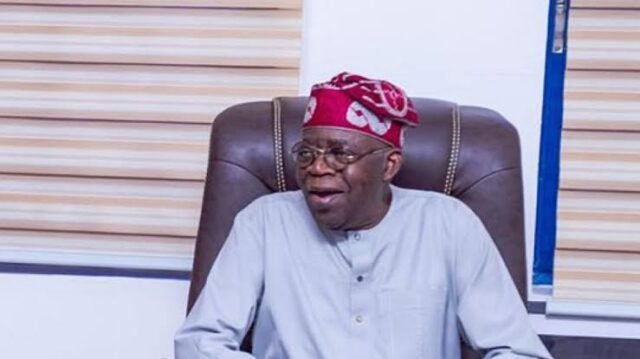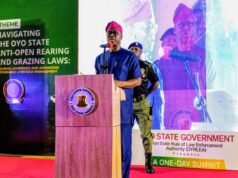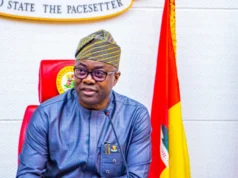For more than a month since its peaceful protest degenerated into chaos, Kenya, the East African economic powerhouse, has become a slaughterhouse of sorts.
While the President, William Ruto, sensing the direction and dimension of the hardship-induced demonstration has publicly declined the FINANCE BILL 2024, in addition to several compromises and concessions, protesters, in sharp contrast have vowed to remain on the streets — indefinitely – until perhaps, all the democratically elected leaders of the country, including the President, turn in their resignation letters.
In days after scrapping the controversial and contentious bill, President Ruto equally dismissed all his ministers, activated various austerity measures that scrapped the budget for the first lady’s office, and cut government spending among others. But for many Kenyans particularly the youths, those gestures are, quite literally, never enough.
‘African Giant’
As Kenya goes up in smoke, Nigeria stands defiantly at a precipice. With the indifference of the organizers of the ’10 Days of Rage’ protest slated for August 1, 2024, Nigeria, African most populous African country contends with similar socioeconomic turmoil. But what is it about protest?
In October 2020 when thousands of young Nigerians stormed the streets to protest against police brutality, the movement, dubbed simply as ENDSARS, was hailed globally.
Leveraging their impressive social media presence and savviness, Nigerians brought the world’s attention to their plights – the movement became the instant trending global topic on the influential X (formerly Twitter).
For a generation stigmatized and stereotyped as ‘wasted’, the success of that organic protest forced older generations to doff their caps and eat their vomits of derogatory slurs hurled at the millennials. To demonstrate its commitment to addressing some of the critical concerns raised by the protesters, the federal government, under former President Muhammadu Buhari quickly ordered the disbandment of the notorious Special Anti-Robbery Squad (SARS). He also ordered the setup of a panel that will look into cases of extra-judicial killings, illegal detentions, and human rights abuses perpetrated by the indicted officers among others.
To sceptics and cynics of the Nigeria project, the government’s expeditious action came as one of the most satisfying and dignifying gestures in decades. But as Nigerians bask in the glow of that heartwarming government step, the protest, sadly suddenly turned to a spectre of the conflagration: instead of sheathing their swords, rampaging protesters vowed to fight on, regardless of whose ox is gored. As anarchy looms, the government speedily turned to the army to quell rising dissents. On the 20th of October 2020 in the Lekki area of Lagos, men of the Nigerian army opened fire on protesters.
Despite the repeated denial, an ECOWAS court recently found the government guilty of human rights violations “The court found Nigeria in breach of Articles 1, 4, 6, 9, 10, and 11 of the African Charter on Human and Peoples’ Rights (ACHPR), concerning the right to life, personal security, freedom of expression, assembly and association, protection from torture, the state’s duty to investigate, and the right to an effective remedy”, Koroma Sengu, judge rapporteur, who delivered the judgment ruled.
While the dust of that epochal moment had settled for years, the echo of destructions that trailed the protest lingered on. Today, some ENDSARS protesters are still in prison. Senator Shehu Sanni, in a speech at the commemoration of the June 12, Democracy Day celebration called on the President to grant the accused freedom.
“In the spirit of the June 12 struggle which we fought 30 years ago, I call on the President to release all the persons still held in the Nigerian Prisons because of the #EndSARS protest, the former Senator noted. Reacting, the Nigeria Police Force, through its spokesman said Senator Sanni’s tweet was misleading. “The Nigeria Police affirms that no individual is being unlawfully detained by the Nigeria Police Force or any other security agency in Nigeria due to the EndSARS protest”, a statement by Muyiwa Adejobi, asserted.
‘The Power of Protest’
Nigerians have lived through several years of protests. The June 12 protest, that called on the military establishment to restore Chief MKO Abiola was one of the most powerful and consequential in the country’s history. The protest, launched to pressure the IBB government to recognize the election that was won by Chief Abiola reverberated across the country’s length and breath. Unsure of what to do, the former military leader threw in the towel. Entered Chief Ernest Shonekan whose three months reign was toppled by General Sanni Abacha. The Aba women’s rights of 1929, described as the first major revolt by women in West Africa caught colonial leaders and their local collaborators unaware. History says the protests broke out when thousands of Igbo women from the Bende District, Umuahia, and other places in the southeastern District travelled to the town of Oloko to protest against the Warrant Chiefs, whom they accused of restricting the role of women from six ethnic groups (Igbo, Ibiobio, Andoni, Ogoni, Efik, and Ijaw). By 1930, the colonial government abolished the system of warrant chieftains and appointed women to the Native Court System – underscoring the power of unity in achieving realistic goals.
‘One Agenda’
As Nigeria’s previous experiences and experiments in organizing demonstrations have shown, a protest without a single rallying point is doomed to fail. Aba women riot was successful in part because of its unified agenda: force the colonial leaders to act in ways that promote women’s active participation in the Native Court System. Similarly, the Abeokuta Women Riot of the 1940s led by the fearless Mrs Funmilayo Ransome Kuti against imposition and unfair taxation equally recorded massive success as the Alake of Egbaland, Oba Ademola Adedapo was forced to abdicate the throne of his forebears. Then the June 12 protest. In the fourth republic, the nation has witnessed protests against the prolonged absence of former President late Umar Yar’adua. Boxed in the corner of legal fireworks, Yar’adua’s handlers later conceded to the swearing of Dr. Goodluck Jonathan as acting President. Again, the 2012 Occupy Nigeria protest had one mission: return fuel subsidy. Lastly, the 2020 protest against police brutality.
‘My thought’
As a democratic nation, the right to protest and demonstrate is non-negotiable. Hardship and suffering exacerbated by the twin policies of fuel subsidy removal and unification of exchange rate have made life extremely difficult and unbearable for the common men on the streets and in the creeks. Utterly ridiculous that the same government that frittered and lavished billions of naira in reconstructing the Vice President lodge, and new Presidential Jet, while supporting a religious activity with #90 billion is also the one calling for calm, patience and endurance from impoverished Nigerians. What could be more hypocritical?
To me, it does not appear the government is sensitive, sensible and clearly aware of the damages its frivolous policies have done to Nigerian’s mental, emotional, physiological and psychological well-being.
Maybe this protest will help reset the brains of those in charge of the country’s affairs for the better.
OYO101 is Muftau Gbadegesin’s opinion about issues affecting the Oyo state and is published every Saturday. He can be reached via @GbadeTheGreat on X, muftaugbadegesin@gmail.com, and 09065176850.
































